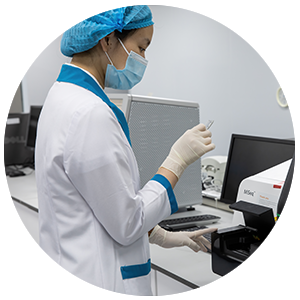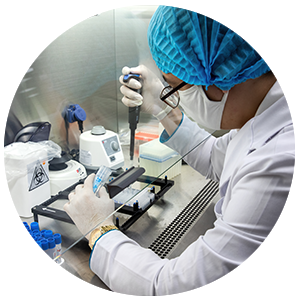Early lab results suggest existing vaccines may be less effective against the fast-spreading coronavirus variant, but boosters should improve immunity. Fast-spreading Omicron SARS-CoV-2 variant is likely to compromise some vaccine protection, first studies suggest.
But preliminary results - announced overnight by teams in South Africa, Germany and Sweden, as well as a Pfizer – BioNTech collaboration - suggest that the protection provided by current COVID-19 vaccines will not be completely wiped out and the enhancement will improve immunity to Omicron.
.
“We may see a reduction in the effectiveness of the vaccine against preventing infection,” said Penny Moore, a virologist at the University of the Witwatersrand in Johannesburg, South Africa, a co-author of one of the studies.”
.
The studies, which measure the ability of antibodies in human blood to block infection of cells in a dish, have not yet been peer-reviewed and do not tell researchers how protective they are. vaccines against COVID-19, specifically its most severe forms - can be compromised by Omicron.
.
“We still need to wait for more efficacy data and a clear signal from these studies,” said Ben Murrell, an interdisciplinary virologist and immunologist at the Karolinska Institute in Stockholm who co-led one of the studies. where this variant is breaking out first.”
.
MANY MUTATIONS
Researchers in Botswana and South Africa identified Omicron in late November, and research teams around the world have raced to understand the variant's properties and the risks it poses. Preliminary data from South Africa and elsewhere suggests the variant is highly transmissible — spreading several times faster than Delta — and can infect people who are immune to other variants.
.
Omicron carries a large number of mutations in its spike protein - the main target of immune responses - and some of these changes, when present in other variants, affect the ability of the antibodies can recognize the virus and prevent infection.
.
Scientists used two types of laboratory tests to test how well Omicron could evade virus-neutralizing or blocking antibodies, triggered by vaccination and infection. One approach uses infectious SARS-CoV-2 particles, typically isolated from Omicron-infected individuals. The other relies on pseudovirus particles - genetically engineered versions of another virus (usually HIV) that use the SARS-CoV-2 spike protein to infect cells.
.
Results from four separate groups all showed that Omicron reduced the potency of neutralizing antibodies more extensively than any other circulating SARS-CoV-2 variant. But the extent of Omicron's effects varied across studies, which tested the blood of people with different vaccination and infection histories.
.
A study led by virologist Alex Sigal, at the Africa Health Research Institute in Durban, South Africa, found that serum - the part of the blood containing antibodies - from 12 people vaccinated with the Pfizer – BioNTech vaccine had potency against Omicron was about 40 times lower than against an earlier strain of SARS-CoV-2. That finding was similar to results from two other studies: one reported by Pfizer and BioNTech in a December 8 press release, the other published on Twitter and later posted on medRxiv by Virologist Sandra Ciesek at Goethe University Frankfurt, Germany.
.
A fourth study, led by Murrell and virologist Daniel Sheward, also at the Karolinska Institute, reported smaller reductions in Omicron neutralizing antibody levels in two groups of blood donors: 17 health care workers , who were previously infected, and 17 Swedes. The researchers could not determine the vaccine status of the anonymous blood donors, but said they would soon update their sheets with vaccination information from health care workers.
.
Despite discrepancies in laboratory results – which are common in such virus neutralization tests – the conclusions remained similar and showed that the effect of Omicron on neutralizing antibodies was “ not completely eliminated,” Murrell said. "The magnitude is still a bit questionable."
.
ENHANCED PROTECTION
The results suggest that the vaccine's effectiveness may be significantly modified by Omicron - but it's hard to say exactly how much. Sigal's team found that people who had been infected before vaccination tended to have higher levels of neutralizing antibodies against Omicron than vaccinated people with no history of infection. “I think retaining some neutralizing antibodies against Omicron might be helpful,” said Moore, a co-author of the study.
.
A previous case of COVID-19 is not the only way to improve antibody levels against Omicron. The Pfizer – BioNTech study found that people who received the third dose of this vaccine had levels of neutralizing antibodies against Omicron comparable to those against other SARS-CoV-2 variants triggered by 2 doses of vaccine. Based on those results, “we expect significant protection against any Omicron-mediated COVID-19 in people who have received the third vaccine,” said BioNTech chief executive Uğur Şahin, said at a press conference on December 8.
.
Danny Altmann, an immunologist at Imperial College London, agrees that boosting antibody levels with booster shots should help protect against Omicron, just as boosters have improved protection against the Delta variant. “Omicron is scarier than anything we've ever known before, because it's still a bit worse than Delta. But we were in a pretty bad situation with Delta in the non-augmented populations,” Altmann said.
.
Jesse Bloom, an evolutionary biologist at the Fred Hutchinson Cancer Research Center in Seattle, Washington, says it will be important to determine the extent of immune mechanisms beyond neutralizing antibodies, such as cytotoxicity. T cells, improving severe illness caused by infection.
.
Pei-Yong Shi, a virologist at the University of Texas Medical Branch at Galveston, said it will also be important to see how follow-up studies confirm the latest results, because variables such as cell type are Use may influence conclusions. “In the next week or ten days, there will be a lot of confirmations coming out,” he said.
.
Translator: Ho Thuy Tien - Phacogen Institute of Technology
(Bachelor of Biology Education - English)
Source of article:





